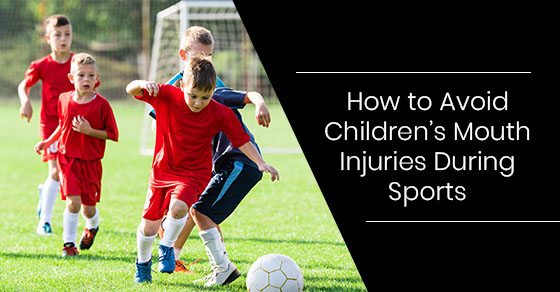
As a parent, protecting your child from injury is always top of mind. If your child participates in sports and other activities, it is possible for them to sustain oral injuries that can lead to loss of teeth or even a concussion. The more active your child is, the more chance there is for them to be injured, although in most cases the injuries will be minor. To reduce the risk of serious injury, making sure your child is properly protected is the best way to be prepared. A mouthguard is the best way to protect them from oral injuries.
Oral traumas are any injuries to the mouth and teeth. They can occur at any time, especially when your child is learning to walk and is still unsteady on their feet. However, oral trauma can also occur when your child is participating in sports.
Some common injuries for toddlers and children include:
Mouth injuries are most commonly associated with falls in younger children. However, sports and other activities can increase risks which include falls, but also being hit by other children, balls, and sports equipment.
If your child is participating in sports, their best defence against injury is a mouthguard. This is even more important when playing contact sports.
Mouthguards reduce the risk of injury because they can absorb much of the force generated during impact. They can protect against serious fractures and lost teeth, reducing injuries to minor bruising.
There are many types of mouthguards available including:
Both will provide support and protection for your child during activities.
There are many benefits to mouthguards, including:
A mouthguard protects against violently jarring the jaw, which can distribute the impact from the mandible against the base of the skull. When this occurs, it is possible to suffer a concussion. This is the most serious and life-threatening risk of oral trauma. The purpose of the mouthguard is to separate the mandible and maxilla to provide a buffer for the potential concussive effect to the base of the brain.
Blows can vary in their impact when it comes to the jaw and chin. Although many parents feel concussion occurs only when the head is struck, when the jaw and chin are hit, the concussive vibration can include the temporal bone of the skull. The cranial nerve contained in the bone affects hearing, balance, and blood supply to the brain. The skull cannot protect or prevent the brain from incurring forces from violent impact, so protection is required.
A proper mouthguard will cover and protect all of your child’s teeth. It is designed to protect your child’s entire mouth, including the posterior teeth, using the proper thickness to diffuse impact to the jaw. The mouthguard protects the anterior teeth from frontal blows. It will absorb and disperse the vibration that could cause severe damage.
The ADA recommends wearing custom mouthguards for the following sports:
As soon as a mouth injury occurs, quick action is required. Although a mouthguard can significantly reduce the risk of injury, unfortunately, it can’t eliminate injury completely.
When a dental injury occurs, you can take action based on the type of injury:
When you arrive at our office with a dental emergency, we will assess the injury by looking at and feeling your child’s mouth. We will also take an x-ray in some cases before determining what repairs are required.
Call Oakville Place Dental Office today at 905-842-6030 or contact us here to book an appointment.
 0 Comment
0 Comment